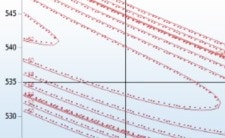
DOE Case Studies with Professor Peter Goos

Peter Goos, professor at the University of Antwerp presents four case studies from the book he co-authored, Optimal Design of Experiments. He introduces each case by describing the type of experiment and when and why it is useful.
Presentation material taken from Optimal Design of Experiments: A Case Study Approach by P. Goos and B. Jones.
Yield Maximization Experiment: A Response Surface Design in an Irregularly Shaped Factor Region
The presenter designs an experiment for investigating a chemical reaction using a full cubic model in two factors. Because many factor-level combinations are known to be infeasible in advance, the two factors cannot be varied completely independently of each other.
Stability Improvement Experiment: A Screening Design in Blocks
The presenter creates a blocking design to determine what factors impact the stability of a vitamin. The process mean shifts randomly from day to day and the investigator wants to explicitly account for these shifts in the statistical model.
Wind Tunnel Experiment: A Split-Plot Design
The presenter designs an experiment run in a wind tunnel where it is possible to vary certain factors without shutting down the tunnel and other factors can only be changed by shutting down the tunnel.
Laser Etching Experiment: A Definitive Screening Design in Blocks
The presenter creates a definitive screening design to determine optimal settings for a laser etching process.